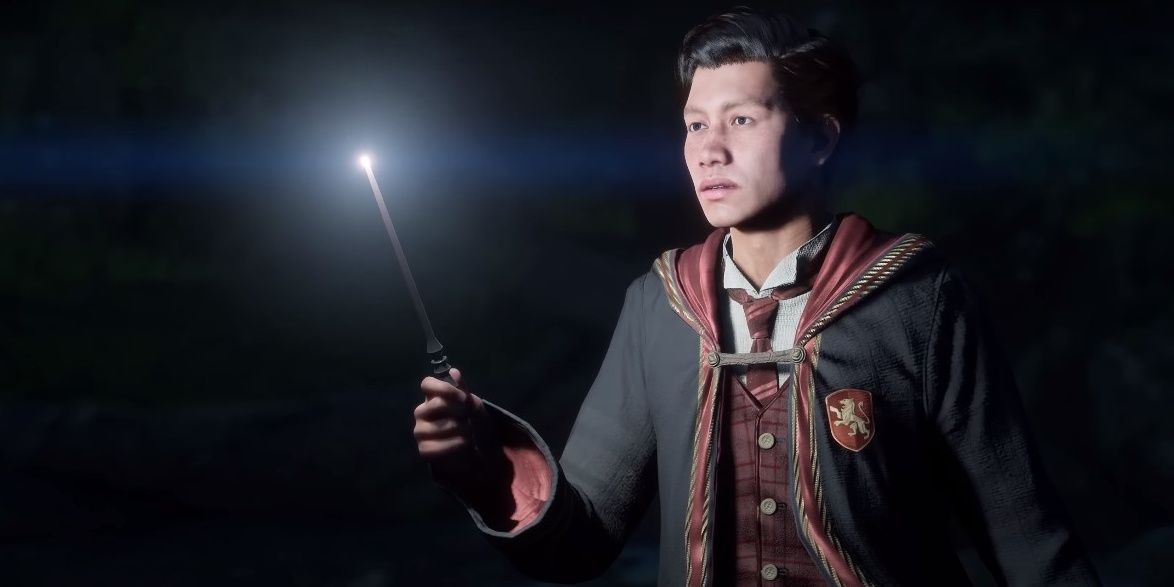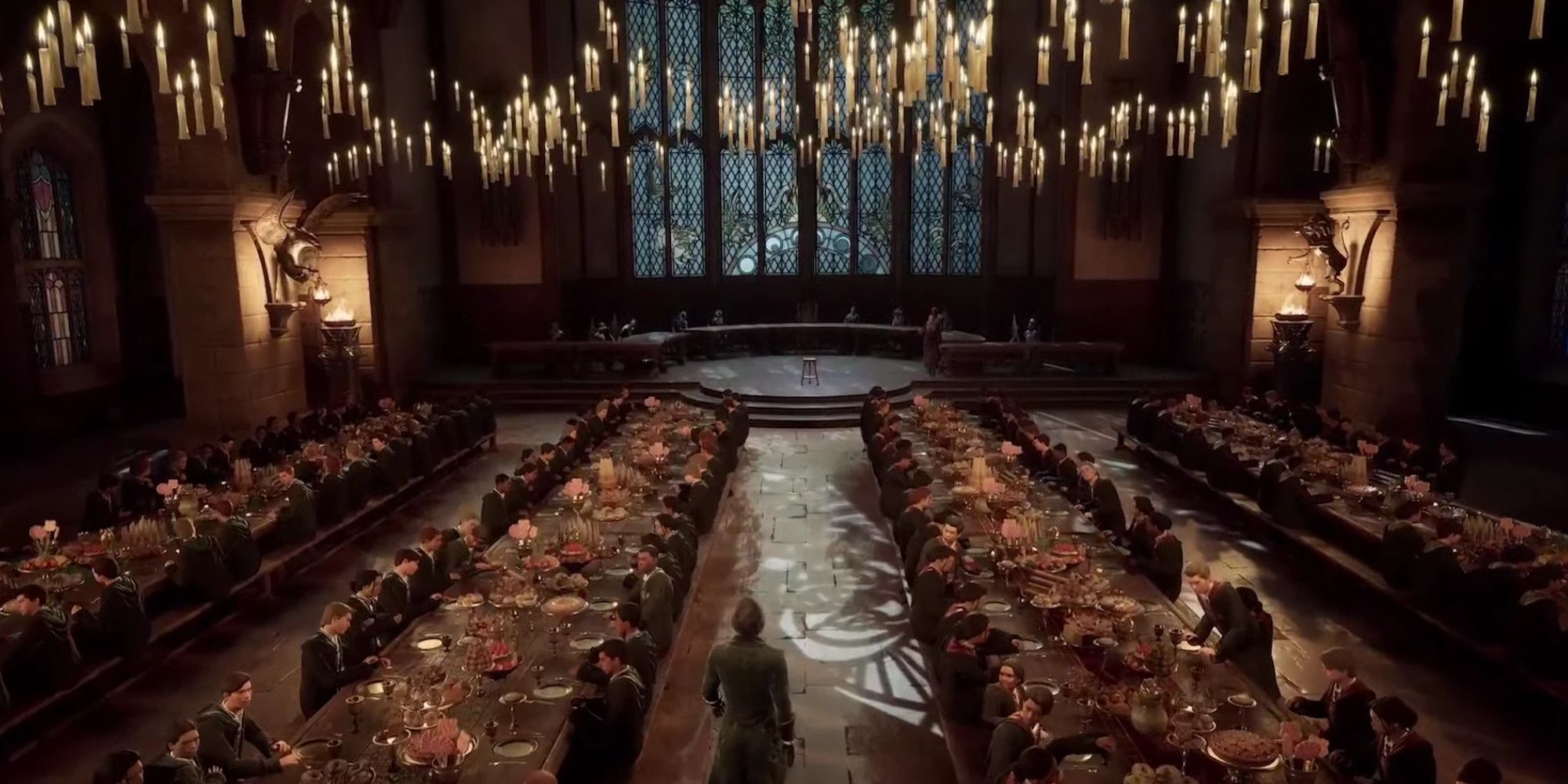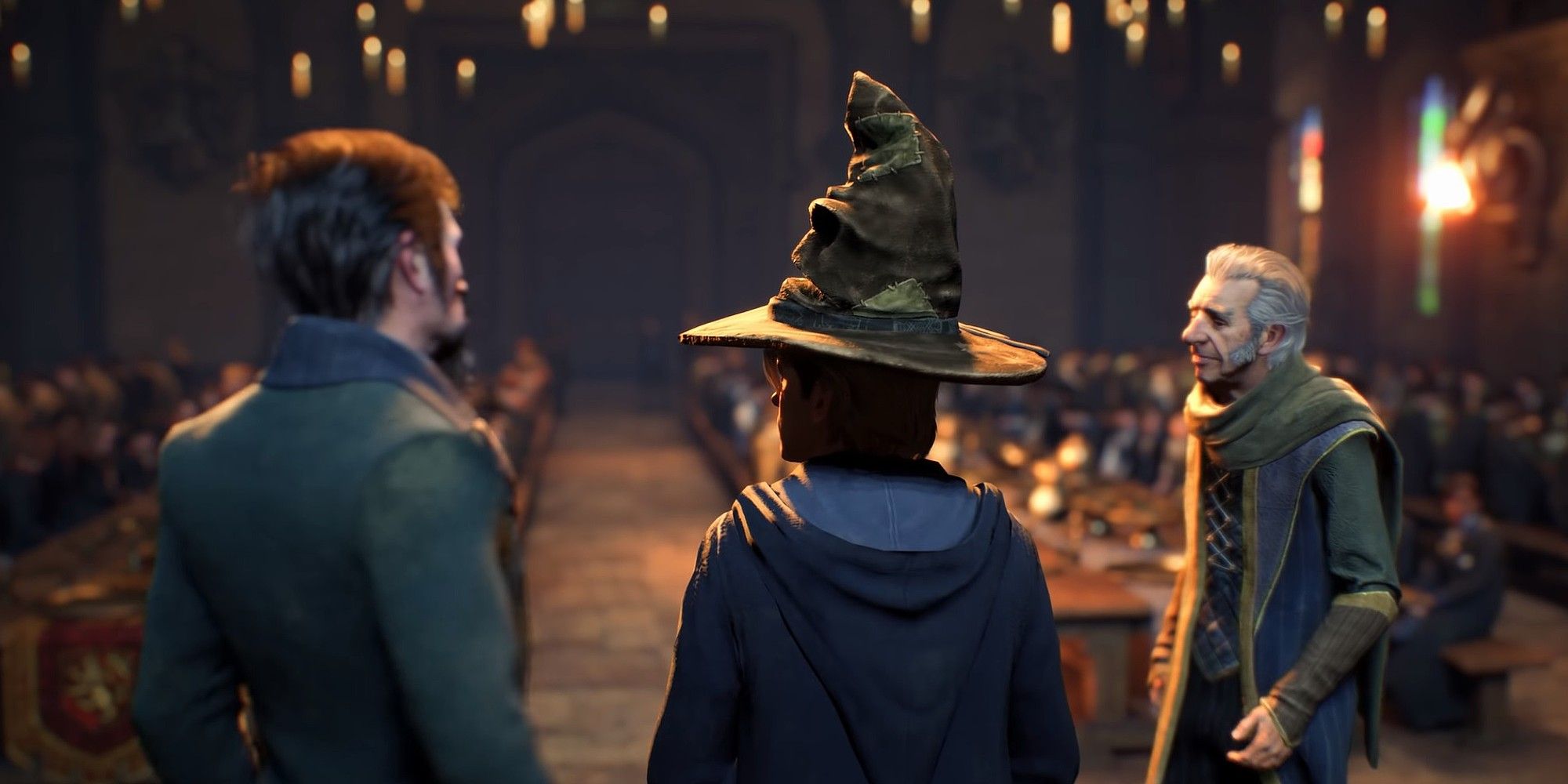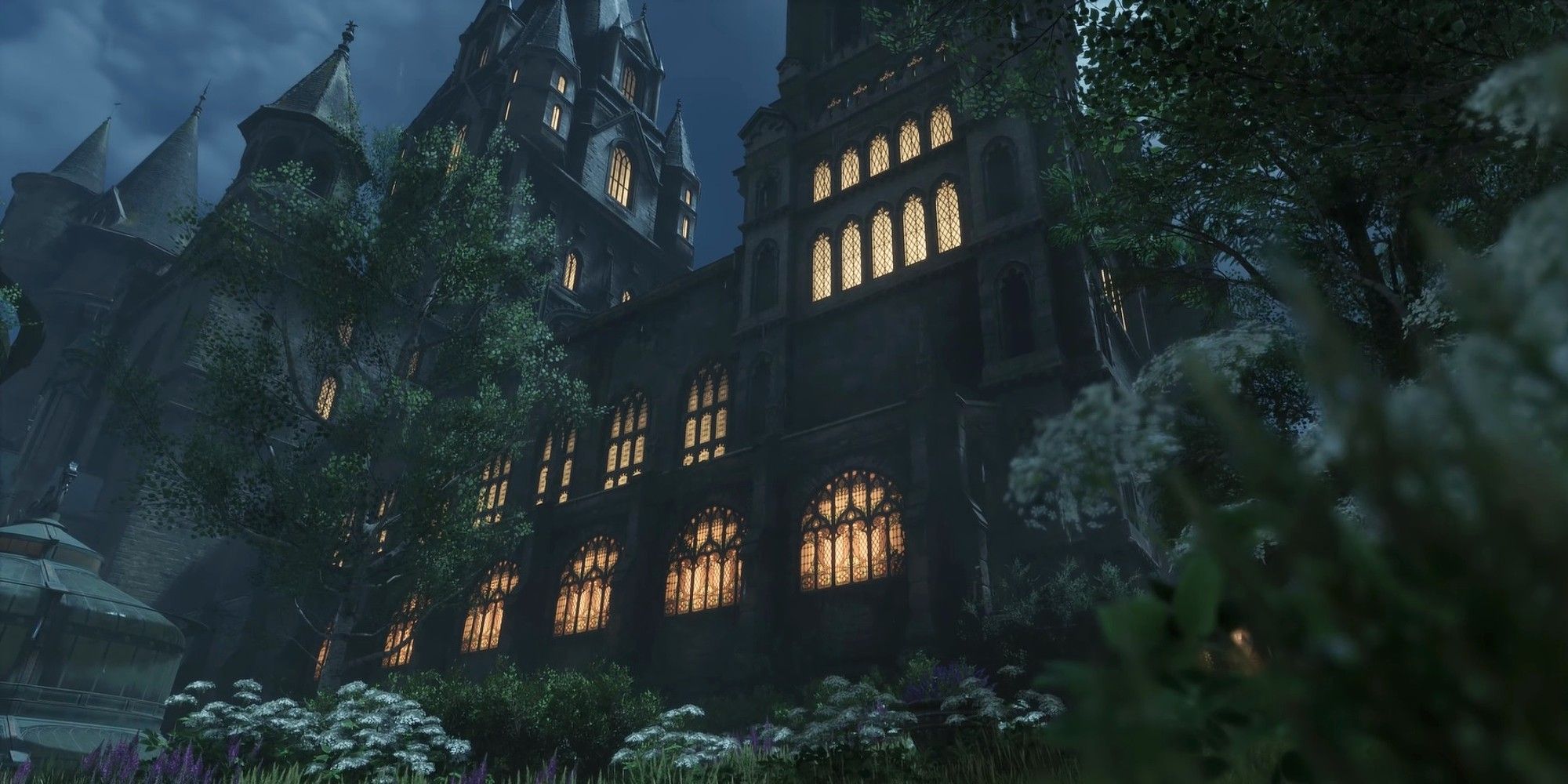Quite often, an incident happens in game journalism that I feel compelled to write about. I live in games journalism, so I see developments both great and small, and consider the wider effects these have on myself, the readers, and the industry itself. Most of the time I fight these compulsions - as much as I may have to say about the topics, most of them only matter in a tangible way to those concerned with the inside baseball. I’m also mindful that we work in a field very quick to paint sites or writers in extremes, and even when I disagree with an individual viewpoint I’m reluctant to pour on gasoline that will fuel the worst sorts of readers. And yet still, I find myself writing about the writing about Hogwarts Legacy.
I did not expect much from games media on this one. Still I was surprised by how much I was let down. As regular readers will know, TheGamer is not covering Hogwarts Legacy with a review, nor (at a much bigger revenue loss for us) guides for the game. I know other sites will have struggled with weighing up that sacrifice, or may not have full editorial control over the games they cover. But reading the glee at the reviews, the delightfully excited tweets, the claims that they are the true victims of an intense bullying campaign by meanie beanies who don’t understand how magical Harry Potter is, I don’t think that’s as large a factor as we assume.
I think, as one write up - which declared the game a GOTY contender the writer had waited their whole life for, but did not feel comfortable scoring - stated, people just, “really want to play it”. Reviews were peppered with disclaimers that alluded to JK Rowling’s words being ‘controversial’ or ‘divisive’, underlining the importance of discussing these issues, then continuing to not discuss them and specifically excuse them from the review. The truth is, only two disclaimers were needed. The first should have read something like ‘Despite JK Rowling’s controversial remarks, I still really want to play this game’ or ‘Despite JK Rowling’s controversial remarks, our corporate bosses really want us to play this game’. I don’t think the latter would have gotten much use.
There was another phrase peppering these reviews too, one which betrays the driving force behind these reviews being that they, “really want to play it”. Almost all of the reviews also mention some variation of this being the game of their dreams. What is the point of your analysis of art when your point boils down to feeling warm and fuzzy when you remember your Gryffindor pyjamas? It’s not exclusive to Hogwarts Legacy either; when Final Fantasy 7 Remake launched, it felt like the most valuable critical voices were those who did not fall in love with the original in the late ‘90s.
I’m going to be avoiding naming publications specifically, as that feels far too much like creating drama and rivalry over analysis of the language used and why I think it makes for such a failing on our collective behalf. The two exceptions will be Rock Paper Shotgun, who are running a Magic Week focused on other magical games in lieu of Hogwarts Legacy, and Games Hub, who seem to be the only outlet that received a review code to continue to write about the important context around the game. Whatever this test was, they passed it.
That said, there are two pieces in particular that summarise why this game was such a decisive moment for games journalism, and why I feel it has set us down the wrong path. One of the biggest sites in the world (with more money and more traffic than us, who could easily afford taking a one-time hit if it so wished) had perhaps the worst disclaimer of the bunch. It opened with a eulogy on how the site has always supported human rights - the site previously publicly withdrew its support of Palestine and criticised employees for not toeing the company line - and explained why the review would not be considering JK Rowling’s views at all.
In fact, it would not be taking anything into consideration at all beyond “whether the game is fun to play or not”. The review was true to its word; it criticised the combat, narrative, side quests, enemies, performance, and world building, then awarded it a 9/10, which by the site’s own metric meant it was a once in a generation title. Those must have been some damn good Gryffindor pyjamas.
You might think that you know all of the controversy around JK Rowling, and therefore a review should only focus on what’s fun. Personally and professionally, I fundamentally disagree that the sole purpose of the critic is to act as a buyer’s guide, but even if I did not, this is a dismissive and reductive way to consider any game. For the site in question to use its influence to project onto its readers that all that matters is how fun a game is, feels actively damaging to professional journalism in an era where a ‘no downers’ attitude is encouraged and hype is available hot from the tap from Ya Bois on YouTube.
There is so much more to a video game than whether it is ‘fun’, which ultimately is a shallow description anyway. What about whether it’s moving? What about whether it’s compelling? What about its impact, its technical might, its potential to influence and new wave of creation? Divorced from this conversation, would any of you describe The Last of Us Part 2 as ‘fun’ and leave it at that?
If this site represents one half of the Gryffindor Pyjama Problem (the inability to be objective and the need to reduce criticism down to your own personal enjoyment), then this next example represents the other: the need to cast yourselves as victims.
As I mentioned above, one outlet did not feel comfortable giving a scored review, only with writing over 1,000 words about why they would be reviewing the game, ending with a (now deleted and rephrased) statement to readers that they would soon give it a “phenomenal review”, declare it a must-have game of the year contender, and signing off with a snarky “good luck” to those pointing out the negatives of supporting JK Rowling, because the game is just “that good”.
This is where we’re at. The toy is just too good for us to care about anything else. As you might expect, the rest of the not-review is quite a bit worse. In it, the writer feels they are uniquely placed in the debate because they are bisexual, cisgender, and have an anti-TERF tattoo right next to their Harry Potter tattoo. They point out that, despite JK Rowling still profiting financially and in terms of publicity from this game and all new Harry Potter media, the world of Hogwarts has been taken away from her. The reason? Some fanfiction is gay.
Moreover, the central theme of this defence is that no one should be mean to you (read: criticise you even a little bit) for playing with this toy. A toy that, Gryffindor pyjamas aside, is identical to, or perhaps a little worse than, dozens of others. A lot of people who consider themselves to be good and nice are repeating just how good and nice they are, stating over and over that supporting JK Rowling in this way does not change that. Maybe if they say it often enough, they’ll start to believe it.
This then comes back around to the people playing the game being the real victims here. It’s not the trans people whose lives are slowly being legislated into illegality in the US, who are constantly the source of front page hit pieces in the UK, who are killed all around the globe for existing, and whose most violent oppressors view JK Rowling as an icon. Instead it’s Harry Potter fans who no longer feel quite so warm and fuzzy when they think of their Gryffindor pyjamas anymore.
Are people calling you all sorts of nasty shit for playing this game? Probably. Do you deserve it? Probably not. That still doesn’t mean you’re in the right. Think of it this way. Imagine you’ve been waiting in line at the bank for an hour, and I cut in front of you. You then tell me you’re going to slit my throat, the throats of my family, and the throats of all the teachers I ever had. I’m still a jackass for cutting in line.
I don’t think it’s all that worthwhile to ‘go after’ other sites that often. It’s rarely productive in an already hostile environment. But Hogwarts Legacy feels like, if not a turning point, then at least a line in the sand. Our readers deserve to know where on that line we stand. Good luck to all of those standing with me. The game, apparently, is just that good. Too good, it seems, for anything else to matter.

.jpg)



